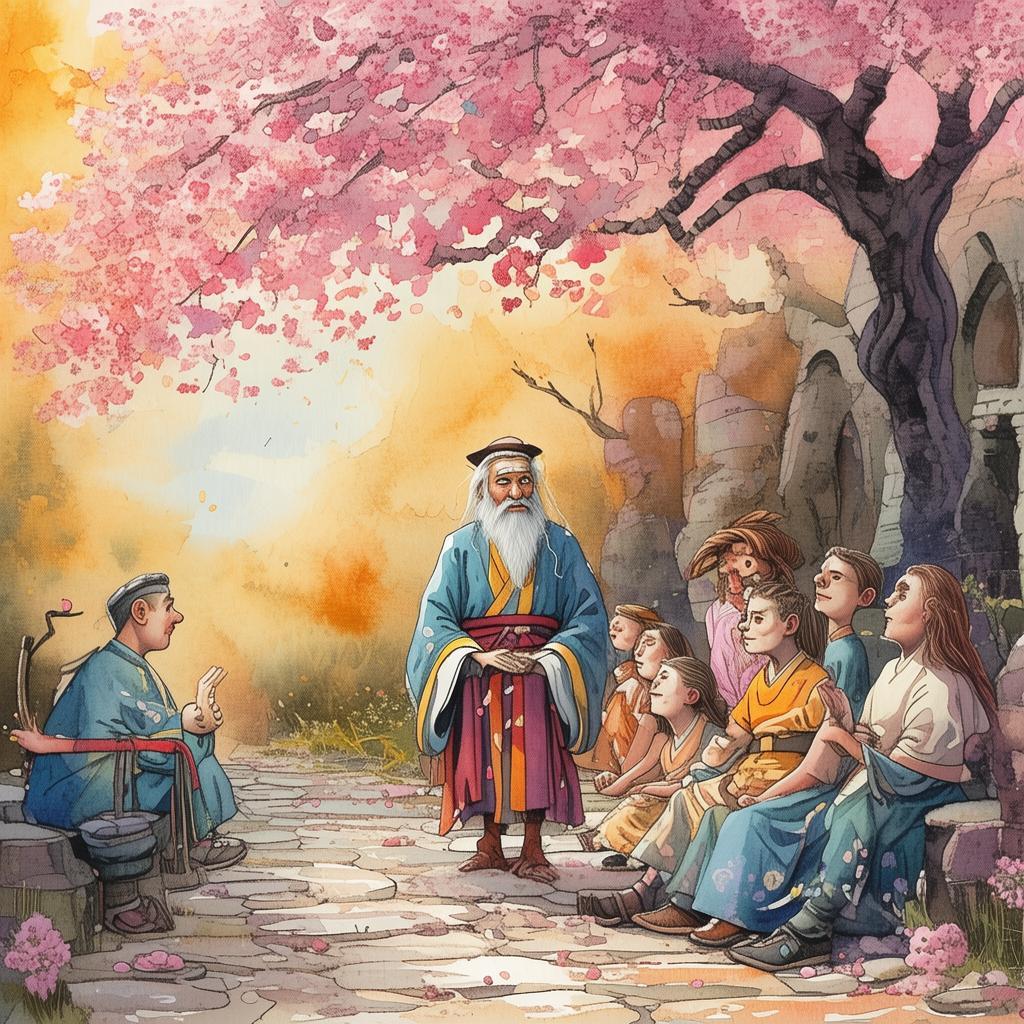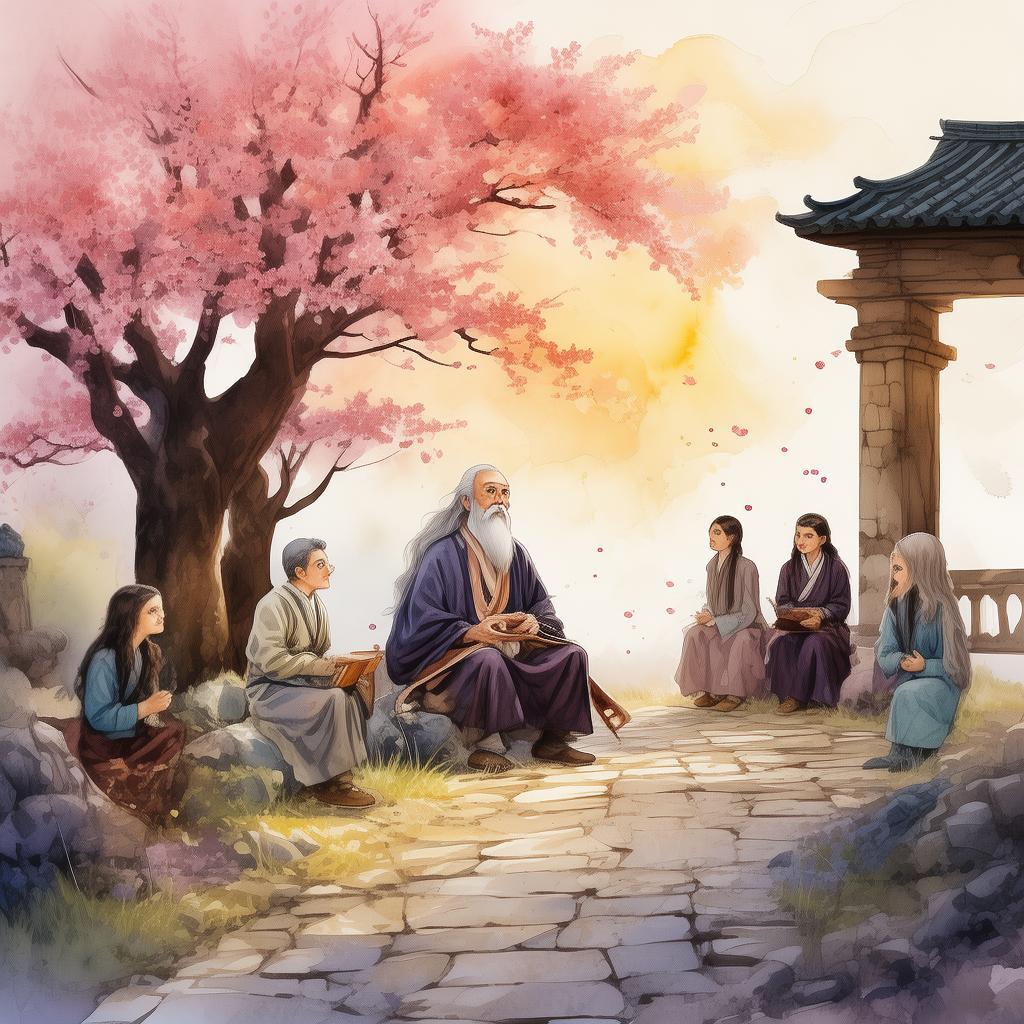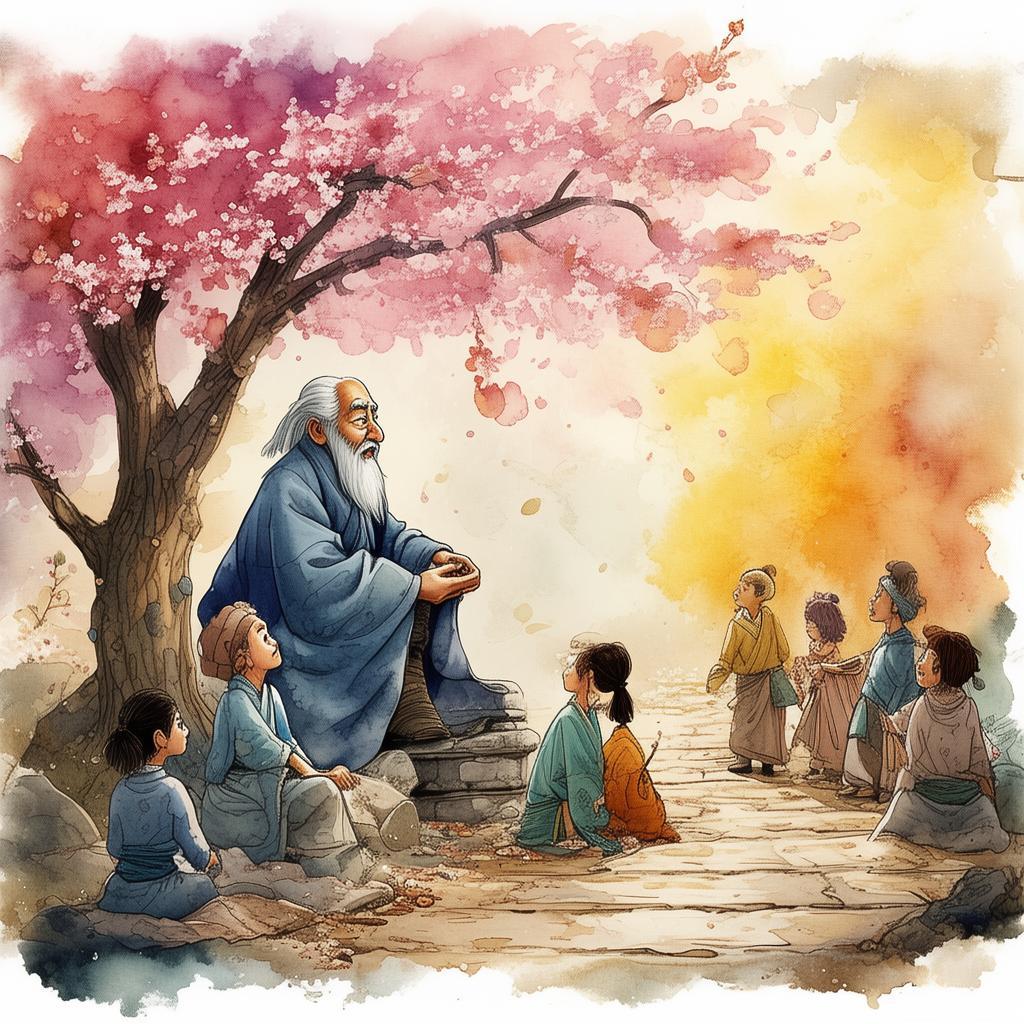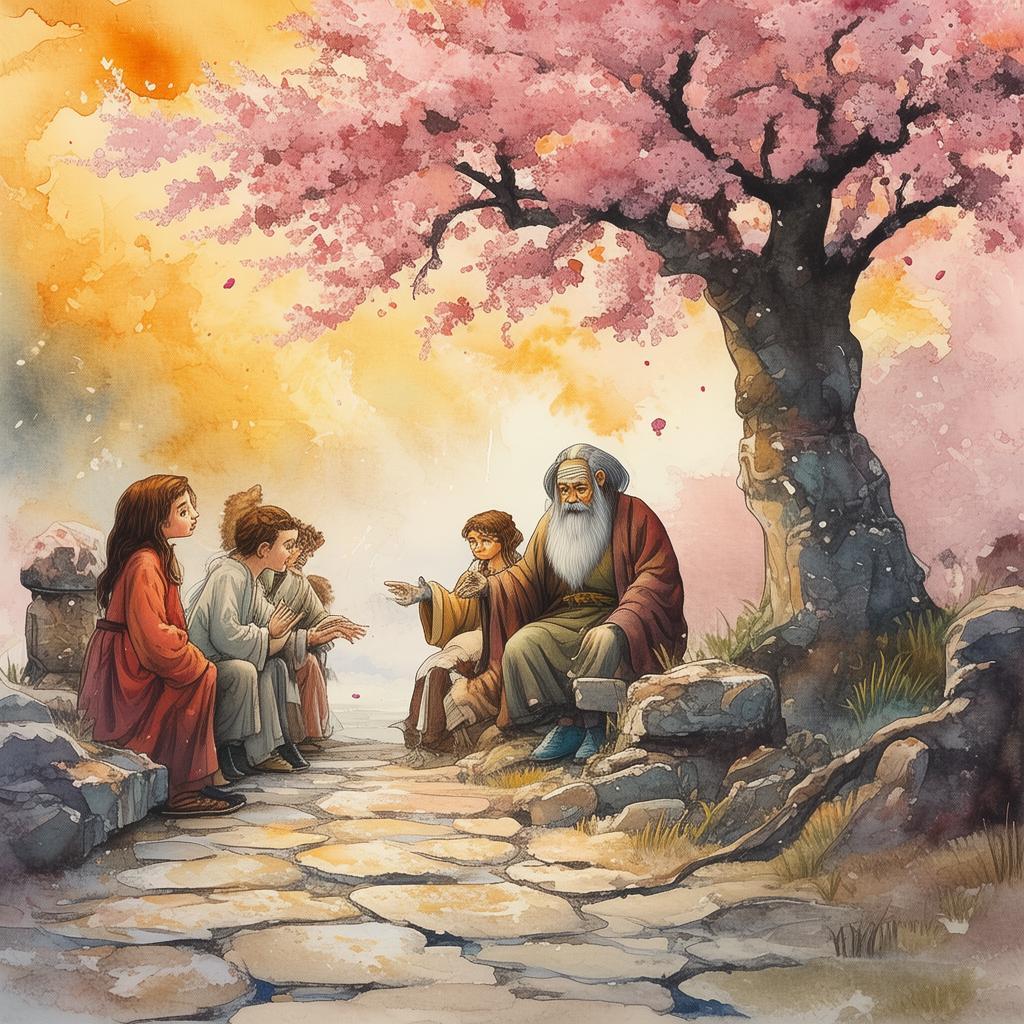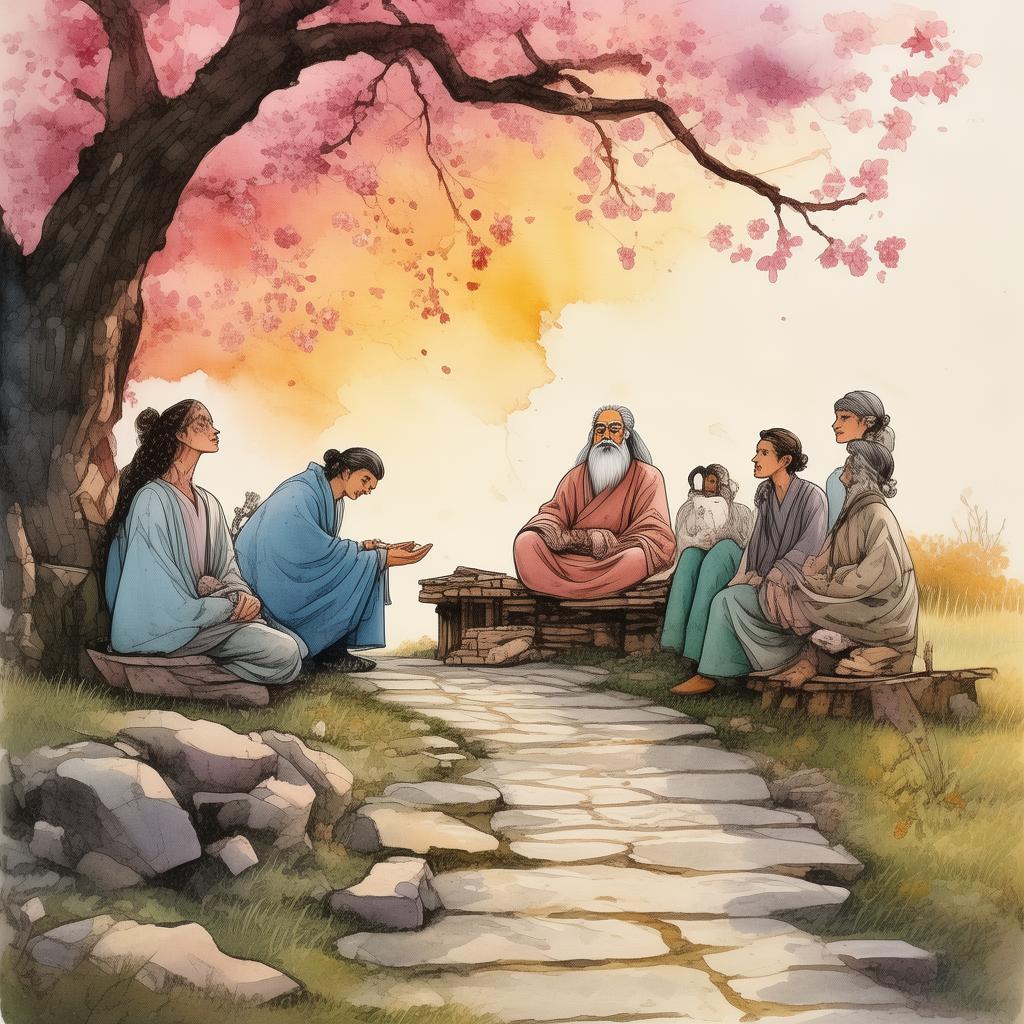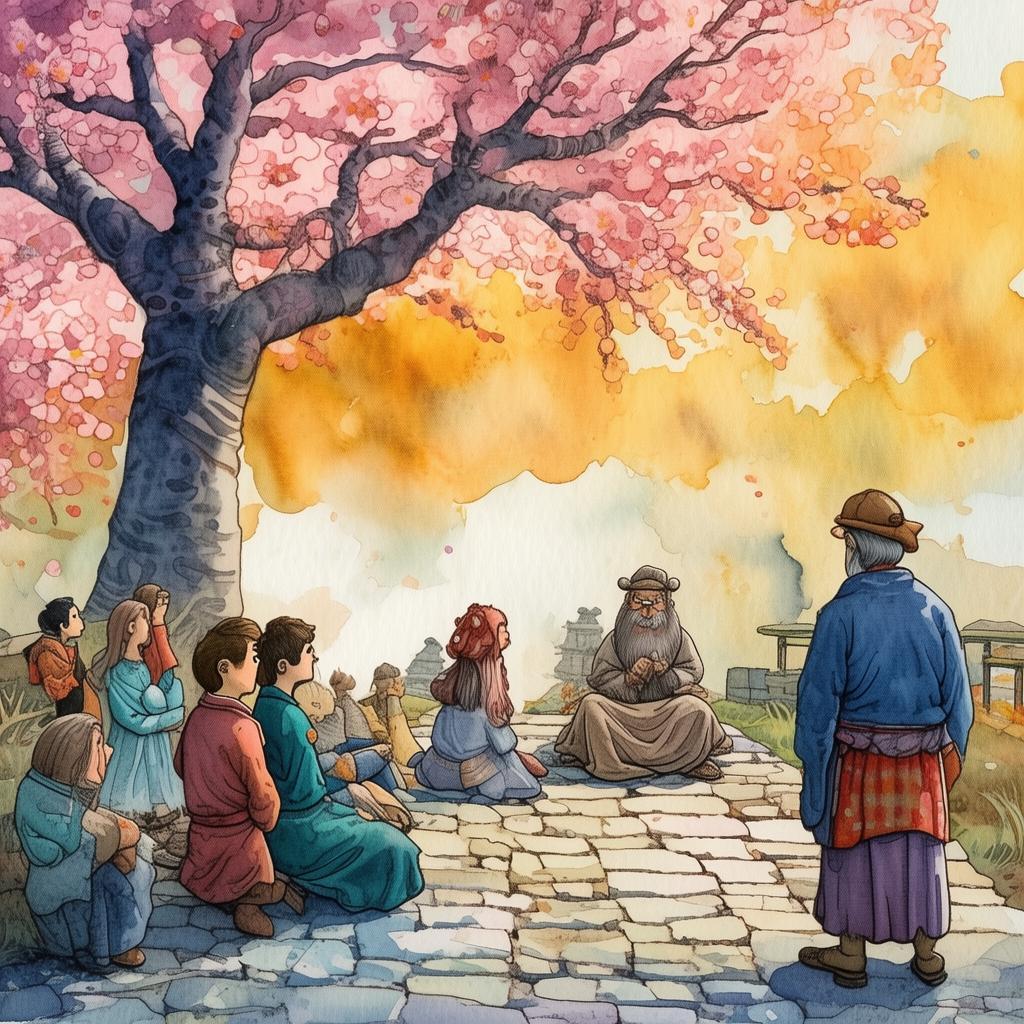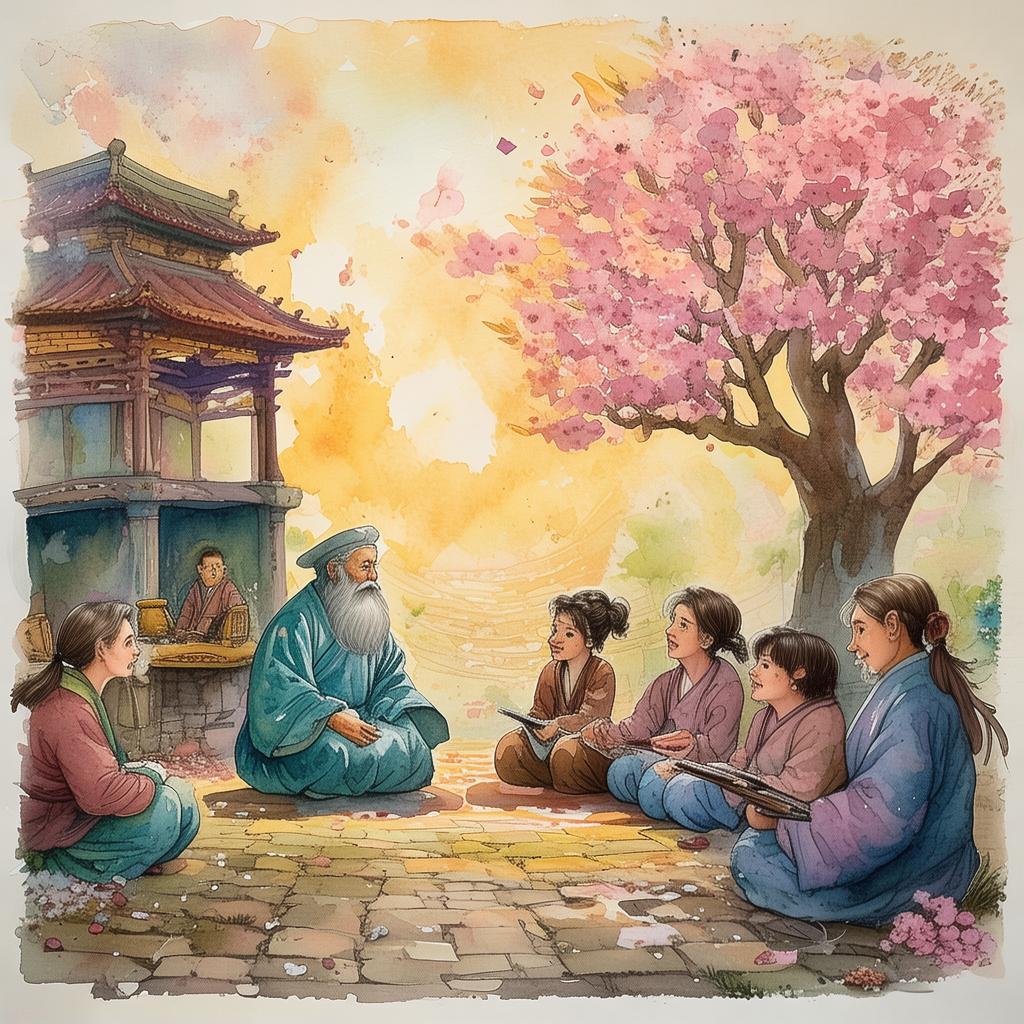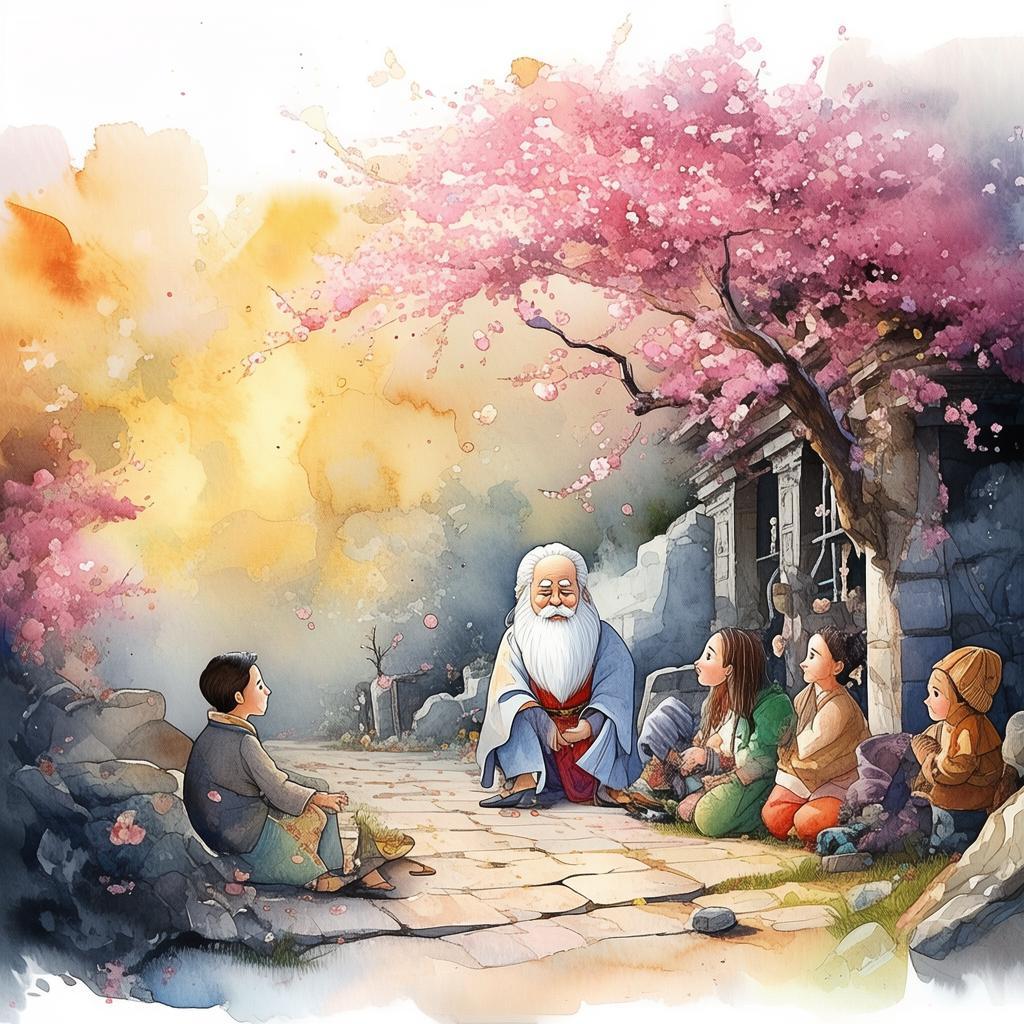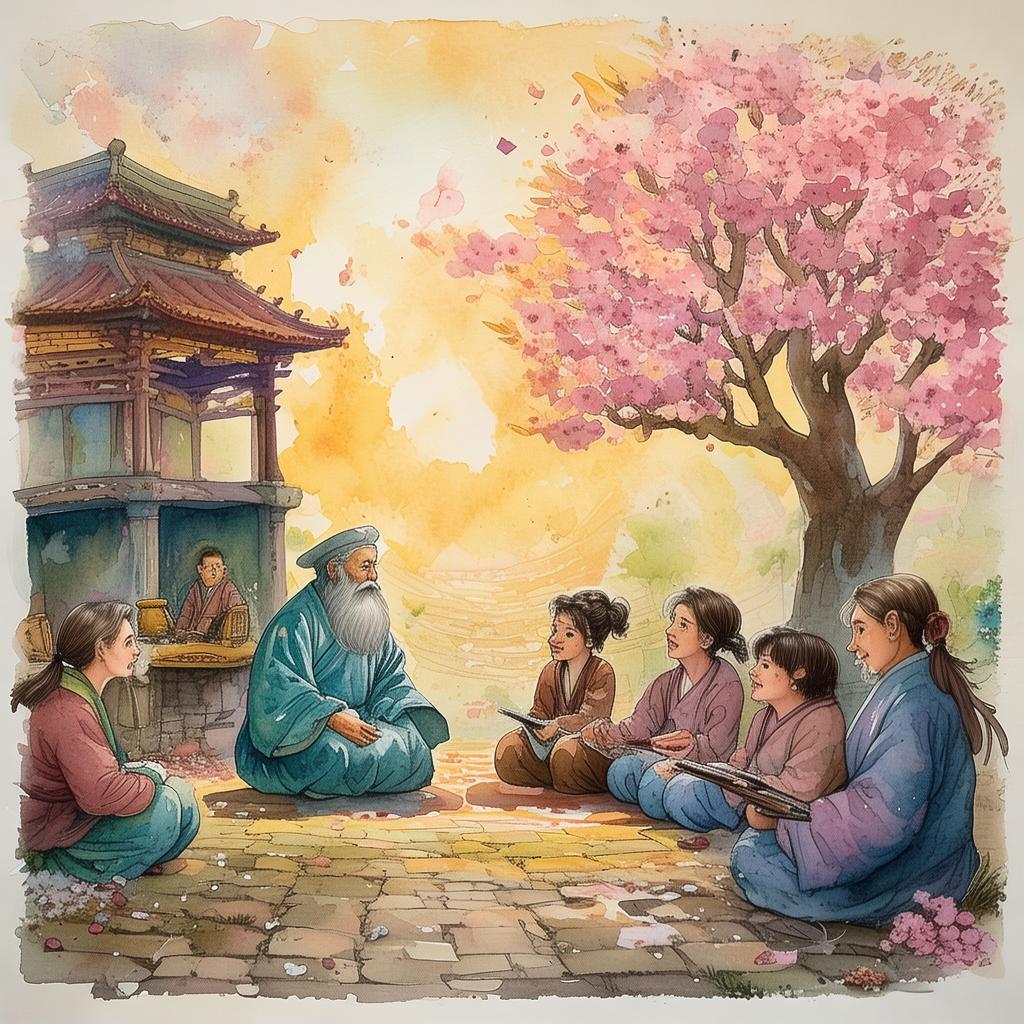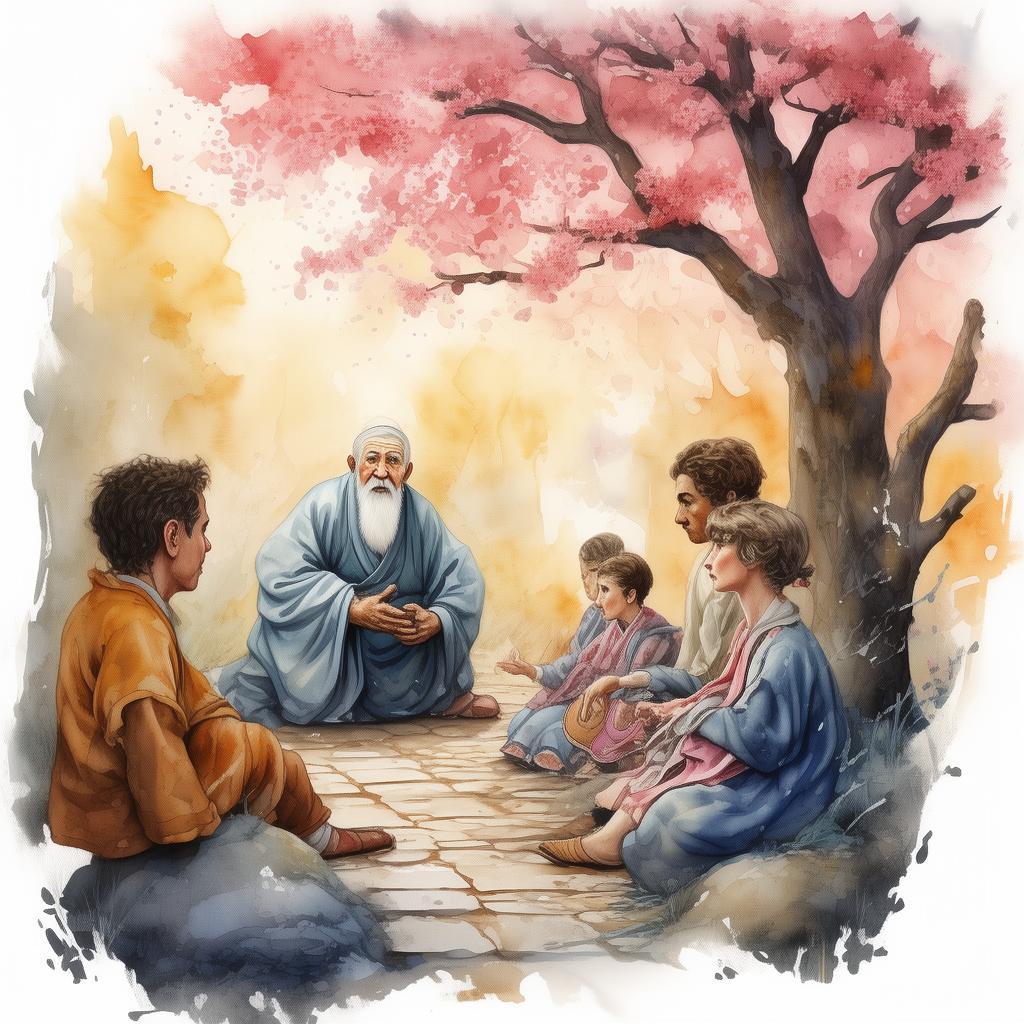Time-Weaved Wisdom: The Scholar's Enigma
In the tranquil town of Lìngyùn, nestled between the misty mountains and the whispering rivers, there lived a young scholar named Cheng Yì. Cheng Yì was no ordinary scholar; his mind was a crucible of knowledge, and his heart yearned for wisdom that transcended the boundaries of time. His quest was not for wealth or fame, but for the truth hidden within the enigmatic riddles of the ancient sages, which were said to hold the key to the mysteries of the universe.
One moonlit night, as Cheng Yì sat beneath the ancient willow tree by the river, he encountered an elderly sage who had a look of wisdom that seemed to pierce through the very fabric of reality. The sage, whose eyes twinkled with the light of ancient secrets, handed Cheng Yì a scroll. "This is the Time-Traveling Scholar's Riddle of the Sages' Enigma," he said, his voice like a gentle breeze that carried the scent of the ages. "It is a quest that will take you through time, across different eras, and to the heart of ancient civilizations. Only the most worthy and intelligent may solve it."
With a heart pounding with anticipation and a mind brimming with curiosity, Cheng Yì accepted the scroll and set off on his journey. The first riddle was inscribed on the scroll: "Seek not the answer, but the question that unlocks the door to wisdom."
Cheng Yì traveled through time, his first stop being the bustling city of Chang'an during the Tang Dynasty. There, he found a wise old man who was a master of riddles. The old man challenged Cheng Yì to solve a riddle that had stumped the brightest minds of the empire. "I am not alive, yet I grow; I don't have lungs, yet I need air; I don't have a mouth, yet water kills me. What am I?" Cheng Yì pondered for a moment before answering, "You are fire. It grows and needs air, but water extinguishes it."
The old man nodded in approval and revealed the next part of the riddle: "The question that unlocks the door to wisdom is 'What is time?'"
The next era took Cheng Yì to the Renaissance in Italy, where he encountered a great painter who was also a master of cryptic puzzles. The painter challenged him with a painting that depicted a man in a dark room, looking at a glowing light through a keyhole. "What does this painting represent?" asked the painter. Cheng Yì thought deeply and replied, "It represents the struggle to see the truth when it is hidden from us, and the key to finding it lies within ourselves."
The painter smiled, "You are correct. The next question is 'What is truth?'"
With each answer, Cheng Yì gained more insight into the nature of existence. His journey took him through the Age of Enlightenment, the Industrial Revolution, and even into the future. In each era, he faced new challenges, each designed to test his understanding of life, the universe, and his own place within it.
The final riddle, presented to him in the distant future, was a profound one: "In a world where everything is connected, how do you become an island of solitude?"
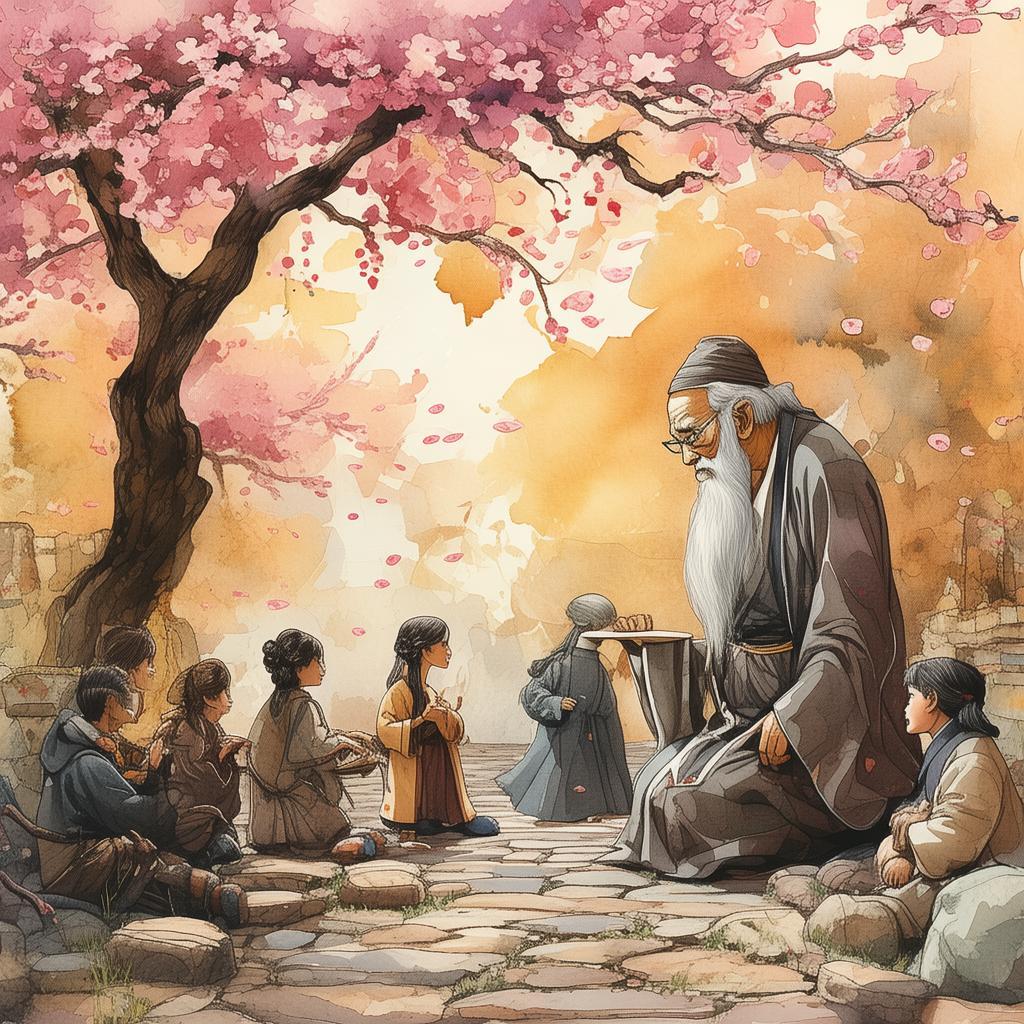
Cheng Yì, now an old man himself, sat in the heart of a bustling city that was a blend of past and future. He smiled as he realized the answer was not in the riddle itself, but in the journey he had taken. "To be an island of solitude," he whispered, "is to be in the world, yet detached from it, understanding the interconnectedness of all things without losing one's own identity."
As Cheng Yì finished the last word of the riddle, the scroll began to glow, and the sage who had given it to him appeared before him. "You have done well, Cheng Yì," he said. "You have not only solved the riddle, but you have become one with the wisdom of the ages."
The sage vanished, and Cheng Yì found himself back in Lìngyùn, beneath the ancient willow tree. He realized that his journey had not only been about unraveling the riddles of the sages but also about finding his own path through the tapestry of time.
The Time-Traveling Scholar's Riddle of the Sages' Enigma had become a part of Cheng Yì's legend, a tale of a man who had traversed the ages, seeking the ultimate truth. And as he sat beneath the tree, the sun setting in a fiery blaze, he felt a profound sense of fulfillment, knowing that the wisdom he had gained was not just for himself, but for all who would seek the answers to life's greatest enigmas.
In the end, Cheng Yì understood that the true power of the riddles was not in their answers, but in the questions they posed, questions that would continue to challenge and inspire generations to come.
✨ Original Statement ✨
All articles published on this website (including but not limited to text, images, videos, and other content) are original or authorized for reposting and are protected by relevant laws. Without the explicit written permission of this website, no individual or organization may copy, modify, repost, or use the content for commercial purposes.
If you need to quote or cooperate, please contact this site for authorization. We reserve the right to pursue legal responsibility for any unauthorized use.
Hereby declared.
